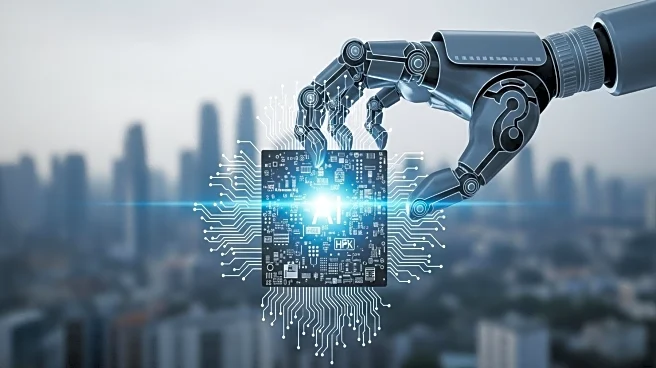What's Happening?
A recent report from Indeed highlights the transformative impact of generative artificial intelligence on tech roles across the U.S. According to the report, 37% of tech talent surveyed have experienced redefined or restructured roles due to AI tools. Additionally, 52% of tech workers have been reassigned, and 26% have faced layoffs as companies increasingly adopt AI. The report from Resume.org further indicates that nearly 3 in 10 companies have already replaced jobs with AI, with 37% planning to do so by the end of 2026. High-salary employees, those lacking AI skills, recently hired employees, and entry-level workers are identified as the most vulnerable to layoffs.
Why It's Important?
The integration of AI into the workforce is reshaping the tech labor market, accelerating long-term changes in demand and role definitions. Entry-level candidates face increased barriers, while experienced specialists remain in short supply. This shift poses significant challenges for tech workers, with 35% expressing concerns about AI potentially taking over their roles. The lack of adequate training on AI is also a concern, with more than a quarter of workers believing AI will increase workplace stress. Despite these challenges, only 17% of tech talent are actively seeking new roles, driven by factors such as higher pay, better benefits, growth opportunities, flexibility, and company culture.
What's Next?
As AI continues to redefine tech roles, companies may need to invest in training programs to bridge human skills gaps identified by learning scientists. These include cognitive, communication, and self-management skills, which are crucial for effective AI implementation in the workplace. Additionally, tech talent may prioritize career advancement and professional development opportunities, such as mentorship programs and upskilling resources, to navigate the evolving employment landscape.
Beyond the Headlines
The ethical implications of AI-driven layoffs and role redefinitions are significant, raising questions about the balance between technological advancement and workforce stability. Companies must consider the long-term impact on employee morale and the potential for increased workplace stress. Furthermore, the shift towards AI may necessitate a reevaluation of educational and training systems to better prepare workers for the demands of an AI-driven economy.









